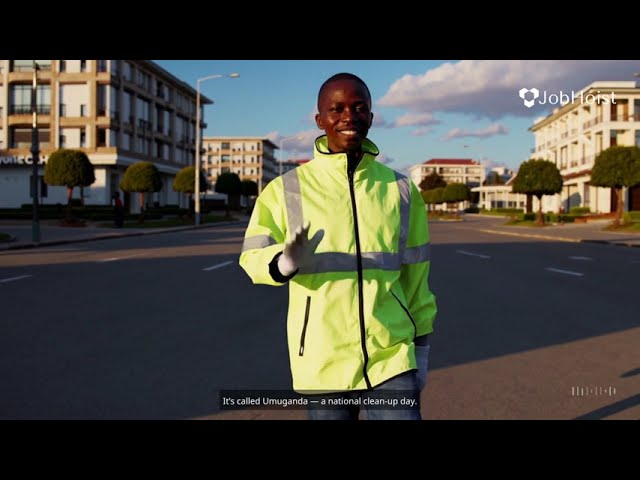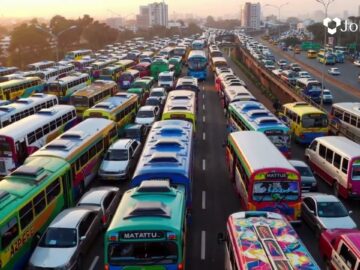Cleaner cities in Kenya are not a dream — they’re a decision. Every last Saturday in Rwanda, something remarkable happens. It’s called Umuganda — a national day when citizens drop everything and clean up their communities.
Meanwhile, just 1,000 kilometers away in Kenya, the story is different. Overflowing garbage bins. Rivers turned into sewers. Playgrounds turned into dumpsites.
So, what’s the difference?
2. What is Umuganda?
Umuganda is a Kinyarwanda word that means “coming together for a common purpose.” Instituted after the 1994 genocide, it became Rwanda’s monthly mandatory community service day — enforced by law, but embraced by culture.
On the last Saturday of every month:
Streets are swept.
Drainage systems cleared.
Public spaces restored.
Neighbors unite.
Even the President of Rwanda, ministers, and local leaders join — leading by example.
3. Why Kenya’s Cities Struggle with Cleanliness
Kenya’s urban areas, especially Nairobi, Kisumu, and Mombasa, face a growing waste management crisis. Despite numerous county sanitation budgets, the trash still piles up.
Some reasons include:
Poor enforcement of waste disposal laws
Over-reliance on private garbage collectors
Lack of awareness and civic duty
Political blame games
Unplanned urbanization
But the biggest culprit? Lack of active policy and leadership.
4. Leadership by Example: The Rwandan Difference
What sets Rwanda apart is not just rules — it’s visible leadership.
Rwandan leaders sweep roads, clean drainage, and work side-by-side with citizens. There’s no hiding behind tinted windows or distant press conferences. People see, follow, and believe.
Now ask yourself — when was the last time you saw your governor, MCA, or even area chief cleaning up your neighborhood?
5. The Policy Gap in Kenya
Cleaner cities in Kenya will not happen through random acts of goodwill. We need structured policy, consistent enforcement, and collective action.
In Rwanda, Umuganda is written into law. Participation is expected. Absenteeism is monitored. Results are visible.
Kenya lacks a similar national community clean-up framework. Counties work in silos. National leadership stays silent. Citizens remain disconnected.
6. How Umuganda Builds Community Unity
Umuganda is not just about cleanliness. It:
Fosters unity and reconciliation
Encourages civic responsibility
Builds a culture of volunteerism
Reconnects leaders and citizens
In a world where urban neighbors often live as strangers, Umuganda revives that lost communal spirit — and proves that civic pride is contagious.
7. Could a Kenyan “Umuganda” Work?
Absolutely — if we make it ours.
Imagine a Kenyan version:
Every last Saturday of the month
Leaders lead visibly
Counties coordinate logistics
Media promotes participation
Schools and youth clubs get involved
Everyone contributes — from estate to slum, village to capital
Cleaner cities in Kenya are not beyond reach — they need political will and citizen action.
8. Case for Monthly National Clean-Up Days
Here’s what a Monthly National Clean-Up Day in Kenya could do:
Improve public health by reducing disease from garbage
Increase tourism by creating cleaner streets and attractions
Create job opportunities in waste collection and recycling
Build citizen engagement and national pride
Reduce county spending on emergency cleanups
Plus, it could help cities meet Sustainable Development Goal (SDG) 11 — making urban settlements inclusive, safe, resilient, and sustainable.
9. Role of Leaders and Counties in Civic Engagement
We must challenge the old script: blaming citizens for dumping waste while leaders watch from afar.
To turn the tide:
Governors must lead city-wide cleanups
MCAs must organize ward-level mobilization
Chiefs and Nyumba Kumi should rally neighborhoods
Youth groups and churches should join forces
Leadership must roll up its sleeves, not just roll past in convoys.
10. Final Thoughts: Cleaner Cities Start with All of Us
Cleaner cities in Kenya will not come from tweets or tender announcements. They’ll come when we act like citizens, not spectators.
Rwanda showed us what’s possible. They chose policy. They chose pride. They chose participation.
Now it’s Kenya’s turn.
Let’s clean up. Let’s show up. Let’s lead from the front — together.
📣 Call to Action:
Join the #CleanKenya movement. Talk to your local leader. Organize your neighborhood. Be part of the change. One broom. One Saturday. One cleaner future.
















